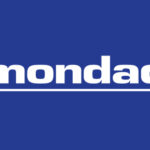To print this article, all you need is to be registered or login on Mondaq.com.
The case law year started well for those interested in
supplementary protection certificates (“SPCs”) for
patents and waivers thereof: on 23 January 2024, the District Court
of The Hague rendered a judgment in a lawsuit between Janssen Biotech
Inc (“Janssen”) and Samsung Bioepis NL B.V.
(“Samsung Bioepis”) on the requirements for the SPC
manufacturing waiver. The judgment clarifies how to interpret the
relevant European legislation, namely the original SPC Regulation and the amended SPC Regulation.
Why Samsung Bioepis allegedly could not invoke the waiver
In this particular case, Janssen argued that Samsung Bioepis
could not fulfil the requirements of a SPC manufacturing waiver,
for three reasons:
- Samsung Bioepis provided the required notice that they will
start manufacturing in three months, but this notice did not
include a reference number of a granted marketing license in the
countries where Samsung Bioepis wanted to export its products; - Janssen has patents in the alleged countries of export, so
Samsung Bioepis would immediately infringe these patents after
exporting; and - Janssen believes that under the SPC manufacturing waiver, it is
forbidden to stock products within the EU before exporting: these
products should be exported immediately.
Because Samsung Bioepis did not fulfil these three criteria,
Janssen stated that Samsung Bioepis threatens to infringe on
Janssen’s SPCs in Denmark and Italy.
Ruling District Court: Janssen was incorrect on all three
arguments
The District Court first states that when interpreting European
Union (“EU“) law, one must take into
account the literal wording of the specific rule, but also its
context, the recitals of the act that the rule is part of, and the
development history of the rule. For the SPC Regulations, the
District Court stresses the important ambition to create a level
playing field for manufacturers of generic and biosimilar medicines
in the EU compared to manufacturers in non-EU countries. This will
improve the competitiveness of the EU.
Regarding reason 1, the District Court states that the notice does
not require a reference number of a granted marketing license per
se. According to the wording of the relevant rule, a manufacturer
is obliged to provide this reference number as soon as this number
is publicly available. If this is not the case yet when providing
the notice, then the manufacturer gets the opportunity to provide
the reference number later (namely, as soon as it is publically
available).
What is interesting in this respect is that this argumentation by
the Dutch court is opposite to a decision by the District Court of
Munich of 14 November 2023. The Munich Court argued that the
reference number should immediately be added and thus applies a
restrictive interpretation of the SPC Regulations. The Dutch Court
however states that the Munich Court is wrong in this respect: a
restrictive approach places manufacturers in the position that they
have to share private information before this information is
publicly available. The Dutch Court argues that this could not be
the intention of the SPC Regulations and thus rules
otherwise.
Regarding reason 2, the District Court argues that no rule requires
an export country to be patent-free and/or that the manufacturer
should prove that this is the case. The District Court states that
if this were the case, it would defy the purpose of the SPC
Regulations (to create a level playing field), as then
non-EU-manufacturers would not be bound by this legislation.
Regarding reason 3, the District Court states that not only the
manufacturing itself is permitted, but also related acts that are
strictly necessary for export. (Temporary) stocking of products is
explicitly mentioned in the SPC Regulations as such a related act.
In addition, the SPC Regulations do not mention a maximum term for
the stock (except for the fact that stocking must be strictly
necessary for export). The District Court thus rules that stocking
is allowed for a usual period of time in regular businesses. This
places EU manufacturers on a level playing field with their non-EU
competitors.
Takeaway
What can one take away from this case? It teaches EU
manufacturers three lessons:
- It is not necessary to have a granted marketing authorization
(and thus, a reference number thereof) when providing notice of
future manufacturing. This can be added to the notice once publicly
available; - It is not required that there are no valid patents in the
countries to be exported to (even though one could still risk
infringement proceedings); and - (Temporary) stocking medicines to be exported is allowed, as
long as it is strictly necessary.
Originally Published 5 March 2024
The content of this article is intended to provide a general
guide to the subject matter. Specialist advice should be sought
about your specific circumstances.
POPULAR ARTICLES ON: Intellectual Property from Netherlands
#SPC #Waivers #Explained #District #Court #Hague #Patent







